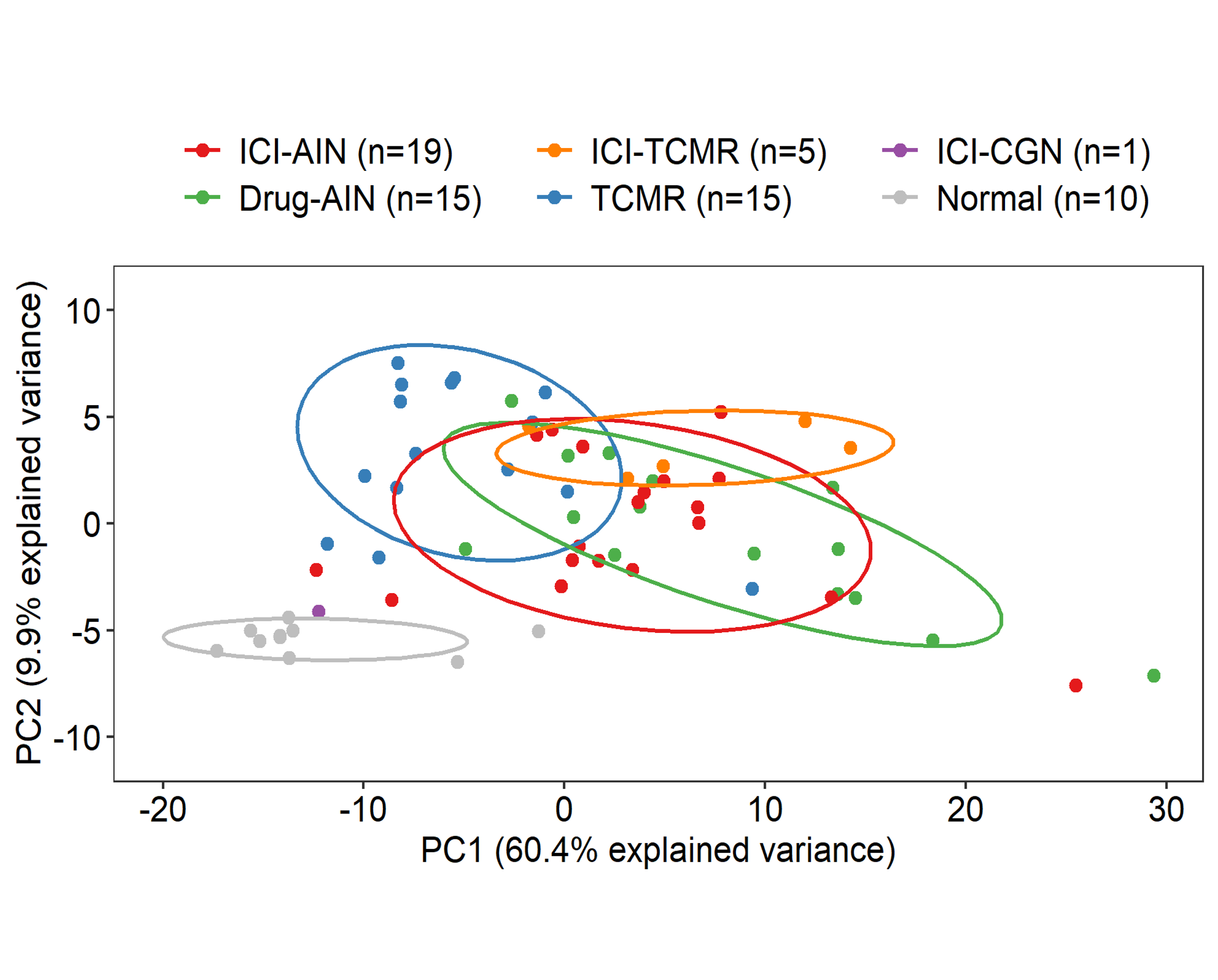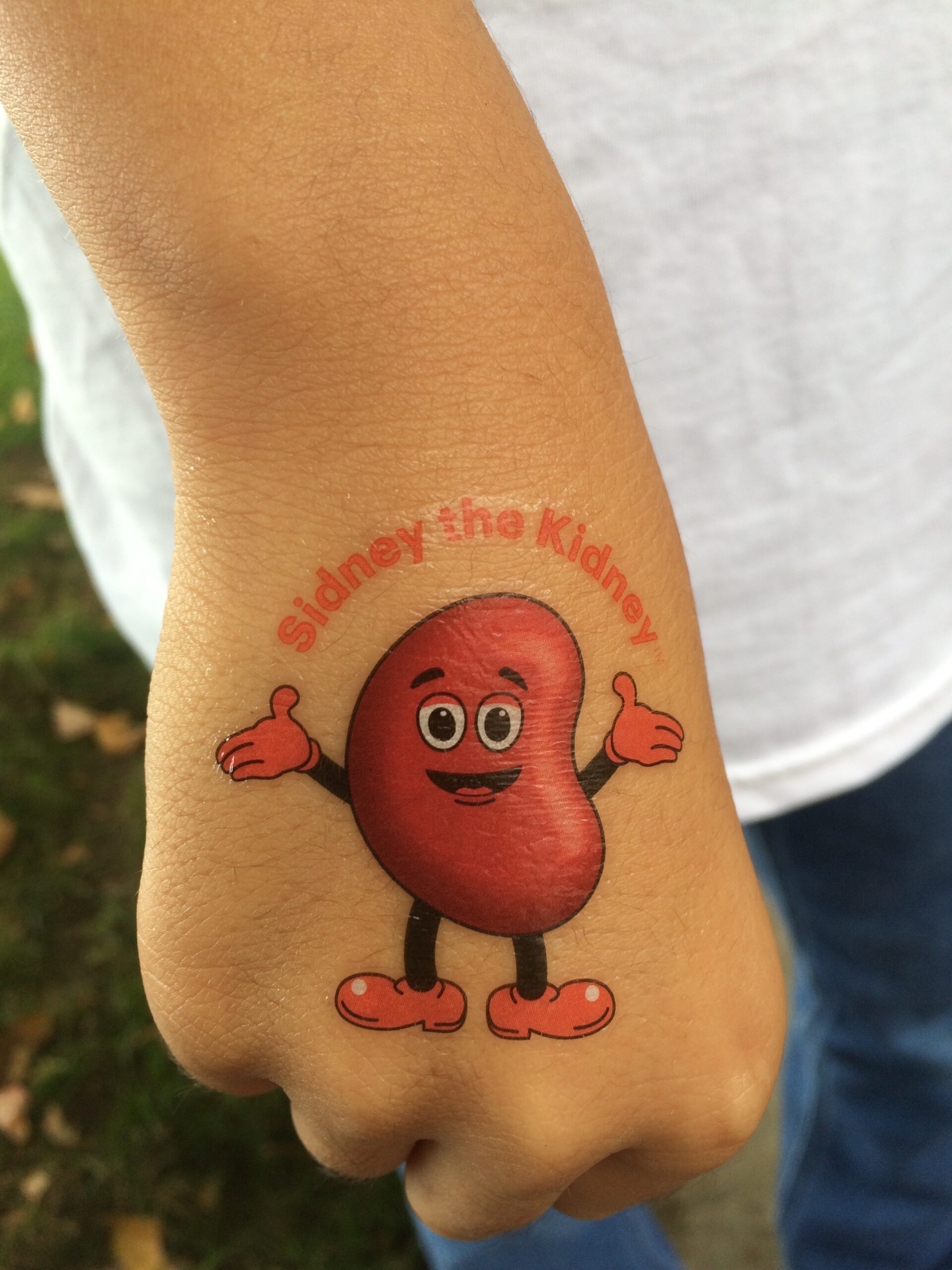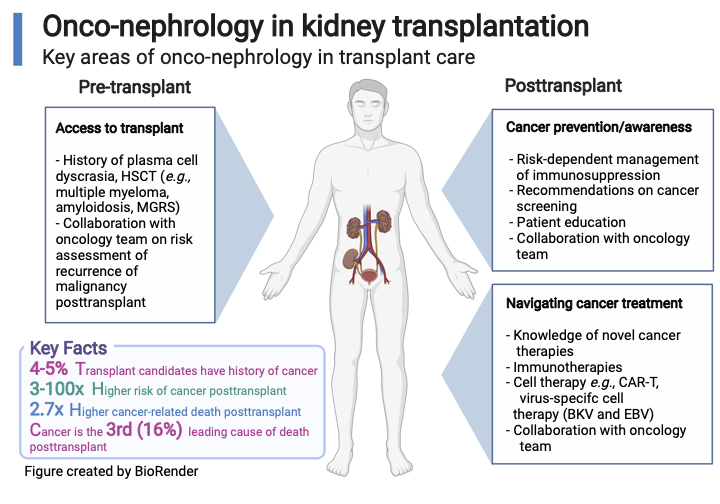
Roles of co-stimulatory signaling in autoimmune kidney diseases and transplantation
The complexity of the immune system is elegant but intricate in nature. Disruption of the homeostatic balance of the immune system can manifest in various autoimmune disorders, and this balance is increasingly complicated in the setting of cancer and transplantation. The discovery of immune checkpoint inhibitor immunotherapy (e.g. anti-PD-1, anti-CTLA-4) has revolutionized the treatment of several malignancies. Immune checkpoint inhibitors work by activating the immune system to recognize cancer cells as non-self. However, sometimes the immune system recognizes our own organs (e.g. kidneys) as something it should attack. In this setting, autoimmune-like side effects called “immune related adverse events” can occur. The Murakami Lab’s focus is to understand the mechanisms of this phenomenon.
Patient-centered care in kidney transplant dysfunction
Kidney transplantation provides the treatment of choice for end-stage kidney disease, but transplant failure is common after 10-15 years post-transplant. Patients with allograft dysfunction frequently suffer from complex symptoms from advanced kidney disease. Palliative care is a specialized medical care for people living with a serious illness, but it is underdelivered in the patients with transplant dysfunction. With close collaboration with KidneyPal team, we aim to support patients’ needs throughout the transplant journey.


As populations ages and cancer prevalence increases, 4-5% of patients with end-stage kidney disease have history of cancer. Cancer used to be considered as a contraindication for transplantation, but we aim to help patients (especially with multiple myeloma and AL amyloidosis in remission) get an opportunity for kidney transplantation. Contact BWH Kidney Transplant program for more details.